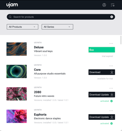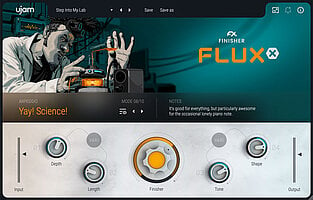AI in Music: Revolutionizing Sound or Silencing Creativity?
Exploring the big question marks around this emerging technology.
APRIL 5TH, 2024
Introduction: the digital dawn of a new era in music production
Artificial intelligence (AI) is here and has irreversibly entwined itself with the fabric of music production, ushering in an era of profound transformation and diverse opinions. In this first installment of our blog series—we aim to explore the dynamic interplay between AI's technological capabilities and the core of human creativity inherent in music composition and production. We'll delve into the variety of tools available that exemplify the integration of AI into the music creation process, from stem separation tools to AI mastering and innovative composition aids, highlighting the advancements that are redefining the industry every day.
Join us on this journey as we decipher the evolving relation between AI innovation and musical tradition.
The double-edged sword of AI in music
The debate over AI's role in music swings like a pendulum between two poles: is it a blessing that unlocks new horizons of creativity and efficiency, or a curse that threatens to undermine the authenticity and soul of musical artistry?
On one hand, AI presents an unparalleled opportunity for innovation, allowing creators to experiment with sounds and compositions beyond human capabilities. Conversely, skeptics voice concerns over AI's potential to dilute the personal touch that gives music its emotional depth, fearing a future where machine-generated tracks overshadow human creativity.
Prompting us to question whether the future of music lies in the harmony of human and machine collaboration or if the soul of music risks being lost to algorithms. Determining whether AI in music serves as a blessing or a curse is a question with no definitive answer; it truly depends on individual perspectives and how artists choose to integrate AI into their creative processes. As much of the debate boils down to personal preference and the specific aspects of music production that an artist might need assistance with.
For many, AI tools represent a significant aid, especially in areas like mastering tracks—a process that can be prohibitively expensive when considering the cost of a professional mastering engineer. Or consider the creative inception; AI can act as a muse, sparking ideas that might have remained dormant without the prompt of algorithmic innovation. Artists might use AI to generate a melody or a beat, serving as the initial inspiration for a piece. Upon finding that spark, they can then reinterpret or expand upon the AI's creation through traditional means, marrying the best of both worlds.
Either way, AI in music is a reality that's here to stay, whether we're ready for it or not. This leaves us with a choice: resist the tide of technological change and “fight the good fight”, or embrace it and discover ways to integrate AI into our creative workflows. Ultimately, how AI shapes the future of music will depend on how we, as a creative community, decide to engage with it.
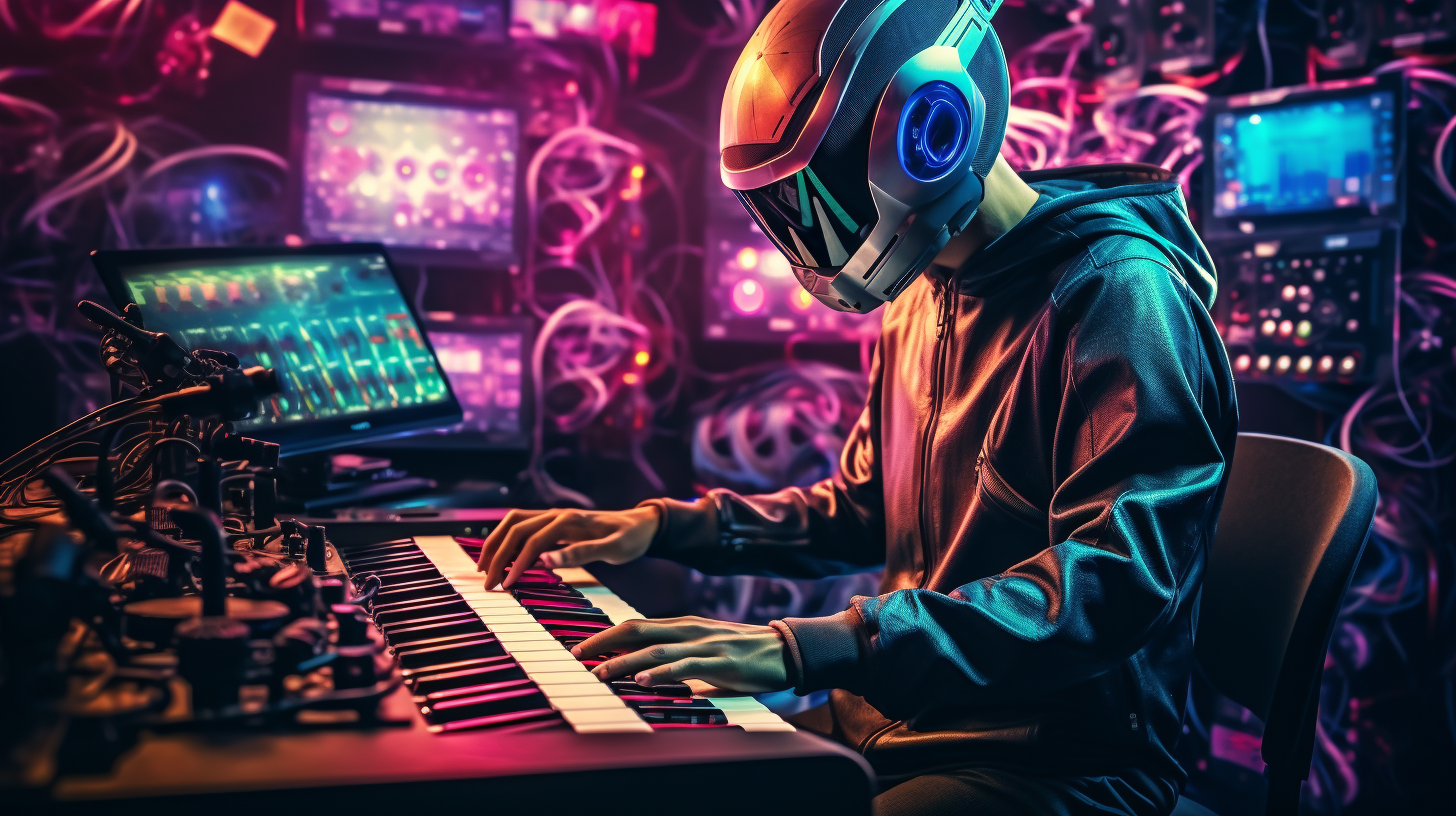
What AI tools are available for musicians today?
When you start looking for AI tools for musicians, it can be quite overwhelming, given the variety of types available and the fact that new tools pop up every day. From stem separation that isolates track components, to mastering services refining your final sound, and generative AI creating entirely new compositions, the options are vast. There are also tools designed for organizing sample libraries and aiding in song composition, streamlining the creative process.
Let's dive into some examples to see how these tools are shaping the future of music.
Stem separation tools have revolutionized music production by allowing artists to isolate vocals, drums, bass, and instruments from any track. Tools like LALAL.AI leverage advanced neural networks for clear, precise separations, while MOISES.AI uses Deezer's AI technology to offer detailed extractions with a user-friendly interface. These innovations have made high-quality stem separation accessible to all, enabling creative remixing and production previously reserved for top-level producers. By democratizing access to isolated tracks, these tools open up new possibilities for creativity and experimentation in music.
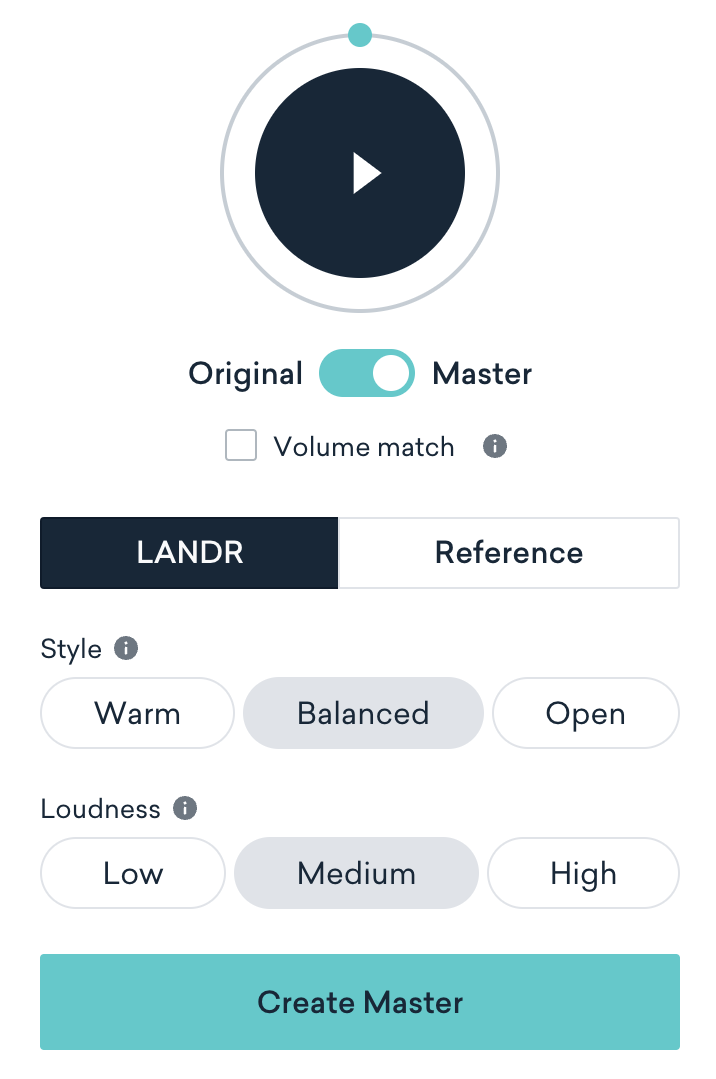
AI Mastering is transforming the final stage of music production by allowing artists to achieve studio-quality sound on their own. Services like LANDR use machine learning to analyze and enhance tracks, applying treatments such as EQ, compression, and limiting. This technology makes professional mastering accessible and affordable, ensuring tracks are polished and stand up to industry standards.
AI-driven music composition tools are redefining the process of creating music, enabling both novices and professionals to generate compositions with ease. Platforms like AIVA and Amper Music use machine learning to understand musical structures and styles, allowing them to produce everything from simple tunes to complex pieces. AIVA focuses on generating emotive scores for media, offering customization options for mood and style, while Amper simplifies track creation with user-defined genres and moods.
Of course, we've only scratched the surface of the endless array of AI tools available to musicians. This rapidly growing field is continuously evolving, introducing new innovations that promise to redefine the music industry. In this article, we've highlighted some pioneering tools, but there's much more to uncover available to musicians.
UJAM’s beginnings and AI
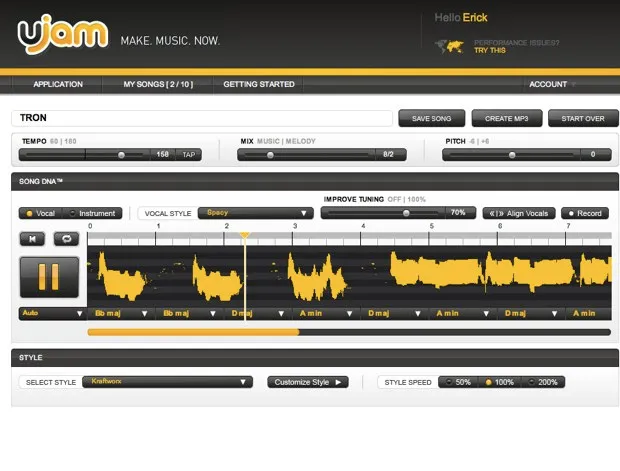
When UJAM first made waves at TechCrunch in 2010, it wasn't widely referred to as an "AI" platform, yet its innovative approach to music creation was indeed a forerunner to today's AI-powered tools. Our early technology allowed users to create music by simply humming or singing into a microphone. This pioneering approach showcased the potential of technology to make music creation accessible to everyone. The system would then interpret these inputs, using sophisticated algorithms to transform them into fully arranged compositions across various musical styles. This process, while not based on machine learning or large language models, utilized principles that are foundational to modern AI-based solutions: analyzing audio inputs, recognizing patterns, and generating complex outputs based on learned data, offering real-time adjustments for tempo, instruments, and mixing.
And while UJAM’s focus shifted over the years towards developing plug-ins, our core mission remains the same: we are committed to making music creation accessible to everyone, no matter their skill level. From our pioneering start at TechCrunch to our current role as music software developers, our journey underscores a steadfast dedication to empowering creators.
Wrapping Up
We have just begun to explore the intricate relationship between AI and music! We have seen how AI can inspire and streamline the creative process, from mastering and composition to the pioneering spirit of UJAM's early days. As the AI music landscape expands, we will continue to explore this exciting new space.
What's your take on AI in music? Does it feature in your music creation process yet?
Stay up to date
Sign up and we’ll send you an e-mail with product news and helpful stuff every now and then. You may unsubscribe at any time.
Defy Limits
We develop software solutions that enable people to create, consume and interact with music.
